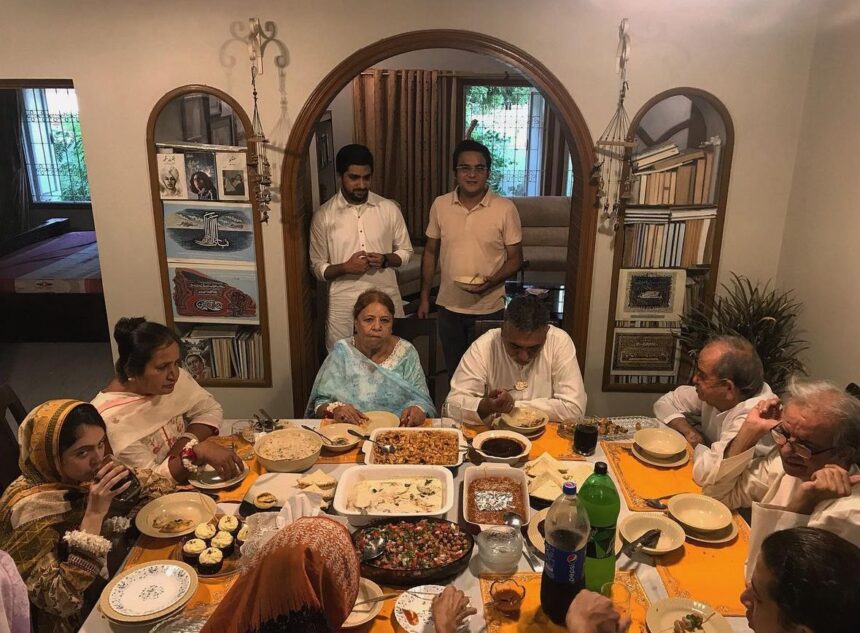Echoes in a Silent Home: Recently, Parvarish, a drama on ARY Digital, has garnered significant attention due to its profound resonance with the Gen Z generation. To be honest, describing the drama as relatable would be an understatement. This drama is the voice of our generation; it is the voice of all those individuals who were never allowed to express their individuality and were then taunted for it. This drama is a mirror held up to our parents and households, which often confuse obedience with control and respect with fear. Parvarish raised several themes that could not be avoided this time, even by our parents.
Toxic parenting has become an imminent issue in our society, which was normalised by the masses saying that “it is our parents’ first lives too” or “they are just saying it in anger; they don’t mean it,” and invalidating and suppressing the emotions, frustration, and trauma of several who grew up listening to words that destroyed their sense of self simply because their parents were living their “first lives.”
The drama brings forward several themes that our youth connect deeply with. These issues have long existed in our society, yet why is it the first time that these are being discussed so openly? That is because whenever someone dares to address these problems, they are often shut down, branded as ungrateful, or accused of not understanding their parents’ struggles.

Echoes in a Silent Home
But that is not the debate. No one is dismissing the hardships of the past or claiming that their parents had it easy. The real point of contention is this: if our parents endured so much just to build a better life for us, why are we constantly made to feel guilty for having it easier? Isn’t that what their sacrifices were for — to give their children a smoother path to walk on?
We’re not saying everything should be handed to us on a silver platter without effort. We’re ready to work hard, but here’s the paradox: our parents want us to become something in life, to succeed and stand on our own. Yet the moment we ask for a bit of independence to figure out our future, they get defensive. In the dictionary of desi parenting, financial independence often translates to rebellion.
They want us to rely on them because as long as we’re dependent, they still have some control. But once a child becomes independent, that control slips away, leaving many parents in a constant state of confusion.
Someone once told me that true parenting means preparing your children to live without you, no matter how much that hurts. But in desi households, as children grow older, so does their dependence. And that’s how we end up with a generation unsure of which steps to take because they’ve never been allowed to walk on their own.
One of the very sensitive themes that is highlighted in Parvarish is the concept of self-harm. This is one issue that a lot of us have seen from very close, yet it remains covered in silence.
Self-harm is one of the most severe symptoms of several mental disorders and diseases, like anxiety and depression. But in our households, where therapy is still taboo and mental health is brushed aside, there is little to no understanding of the deep pain and danger it represents.
Despite living in an era where social media constantly amplifies mental health awareness, the reality is painfully ironic: we know it exists, but we still choose ignorance when it’s closest to home.
Where this drama has created a significant impact on our society, it has also misled the youth in some way. The plot in the serial where the main lead, Wali, leaves his home, and the very next day he very conveniently finds a safe shelter to reside in and someone who is ready to take up his responsibility and to make something out of him — the fact that this drama has so much influence on the youth means that there is a high chance that young boys might leave their homes inspired by this character in the hope of stumbling upon a stranger who will change their lives. But that’s an extremely unrealistic hope. In reality, such decisions made in moments of anger or frustration rarely end well. Sleeping on a footpath is not easy at all, and finding shelter, let alone a guiding figure, within a single night is far from the truth.
Even though this drama is widely being resonated with by the youth, the real message is for the parents — for the elders of our household. Growing up is a difficult period for individuals; hence, instead of being someone that they are scared of or want an escape from, become a safe space for them. Tell them what they mean to you, because a little expression of love won’t do any harm.
Everyone talks about breaking the chain of generational trauma or whatnot, but for that, the trauma needs to be addressed, not ignored; it needs to be understood from a grassroots level, and only then will we be able to break the toxic cycles and heal.
















